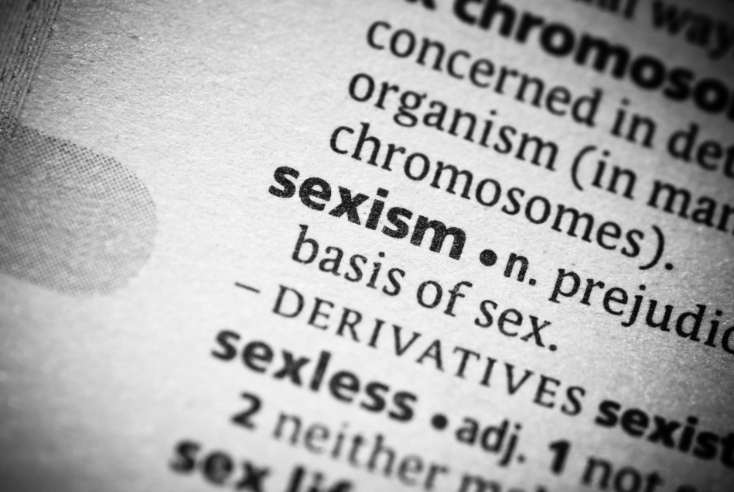You do not need to look far to find sexism is still rife in the media

Opinion
With a new woman editor at the helm of a major newspaper, will we finally see the end of sexism within our news?
A few days ago, whilst scrolling through Instagram in a fit of procrastination (a more common occurrence than I’d care to admit) I came across a screenshot of a headline that was being shared by thousands.
It was about George Pattinson, the murderer and husband of Epsom College headteacher Emma and their daughter Lettie. It posed a question — one that might seem innocuous to some, but to others was highly provocative — that simply read: “Did living in the shadow of his high achieving wife lead to unspeakable tragedy?”
No prizes here for guessing which tabloid giant published this.
The problem with this headline and the reason so many people were annoyed about it, is its undertones of misogyny.
Between the sprinkle of blame for Emma’s murder placed on her own achievements and the passive use of the word “tragedy,” it smacks of the insidious sexism still rumbling through the media.
And given that it was written by two journalists and would have been approved by at least one editor prior to publication, it’s hard not to pose my own questions.
Firstly, why did no one spot the problems with this before it went live?
And secondly (and more pressingly), is anyone going to do something about the fact the news still sort of hates women?
Okay, perhaps ‘hates’ is a strong word, but the continual mistreatment of women in the media narrative cannot be denied.
This is something that troubles me often, but that has come to the forefront of my mind once again with the appointment of Emma Tucker as the new editor-in-chief of the Wall Street Journal (WSJ).
Like others, this brings me hope that we’ll start to see a difference in the way women, as subjects and expert sources, are treated.
A needed shift in the media narrative
As Heather McGregor writes for journalism.co.uk, this appointment is something of a landmark moment as, for the first time ever, women are leading the “three titans of financial journalism” — the WSJ, the Economist and the Financial Times. This is to be celebrated in itself, but I’m also keen to see if it will bring about the shift in narrative that’s so desperately needed.
This isn’t just my problem, either. The statistics back me up here. Only around 20% of expert news sources are women, according to The Global Media Monitoring Project, proving that the exclusion of women from high level conversation on important topics is being normalised.
The consequence of this is that women’s contributions are regularly devalued, not receiving the same level of recognition and acclaim that their male counterparts enjoy.
An example of this came just last week, when author Kate Mosse and the Women’s Prize Trust announced a new non-fiction literary prize just for women, having discovered through research that female writers were far less likely than men to be reviewed.
Aside from that, almost half of news stories (yes, you read that correctly) actually reinforce gender stereotypes, depicting women through the lens of motherhood or marriage, in suffering, as submissive or in the role of being another woman’s enemy.
A subtly or overtly sexist media story?
Don’t believe me? Like rats in London, we’re seemingly never more than five metres away from a subtly — or overtly — sexist media story and it doesn’t take much digging to find evidence of this even within the last 24 hour news cycle.
Quips about whether Kate Forbes — a possible contender for the SNP leadership currently on maternity leave — would want such a job given that she’s just had a baby were seen on the BBC yesterday and, due to complaints, have since been edited out.
The problem here is that each incident might not seem to amount to much on its own, (I understand, for example, why the headline about George Pattison or the remark about Kate Forbes might seem like legitimate ponderances to make) but they do all add up to a larger problem. The problem that they are comments or questions rarely made in the context of men.
I can explain this even within the context of just two of these incidences. It would seem odd, for example, if a male contender’s qualification for the SNP leadership was considered against the backdrop of his recently born baby and it would seem equally strange if a woman’s motive for murdering her husband was qualified by the fact that her career was overshadowed by his.
What I’m really getting at, here, is the fact that women’s stories are mostly seen through the filter of a gender stereotype. What I’m really getting at, is the fact that women are forever being followed around by the stink of a reputation forced upon them by the patriarchal systems our society still thrives on.
And with the rise of misogynistic influencers fuelling radicalisation and overt sexism in children as young as 10, it’s never been more pressing for this issue to be addressed.
Let’s hope with so many women at the helm of the world’s largest news companies, we’ll finally begin to see this change.
 Bianca Barratt is a freelance journalist and editor and writes features across business, lifestyle and culture. A former lifestyle writer and shopping editor for the London Evening Standard, she is now a senior contributor to Forbes Women and has written for titles including The Sunday Times, Independent, Cosmopolitan, BBC Good Food and Refinery29. She writes for The Media Leader each month.
Bianca Barratt is a freelance journalist and editor and writes features across business, lifestyle and culture. A former lifestyle writer and shopping editor for the London Evening Standard, she is now a senior contributor to Forbes Women and has written for titles including The Sunday Times, Independent, Cosmopolitan, BBC Good Food and Refinery29. She writes for The Media Leader each month.




